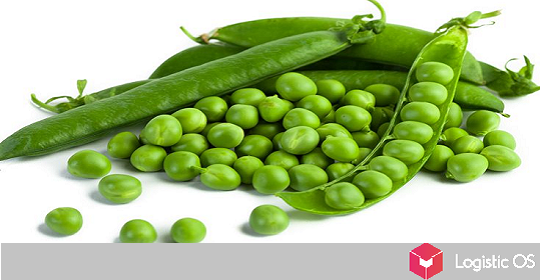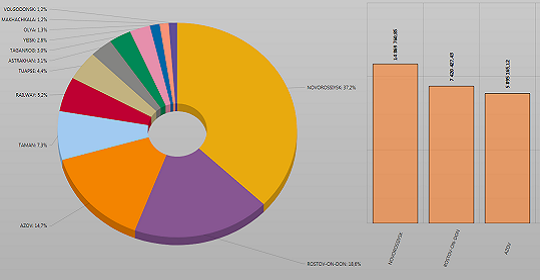It is planned that over the next few years this volume may grow 4 times and reach 4 million TEU.
The company plans to achieve this ambitious target by 2027. As Aleksey Shilo, Deputy Director of Russian Railways, noted, it is possible to move towards this goal at an even faster pace, which could make it possible to get closer to it as early as 2025.
Currently, the transit of containerized cargo through Russia is about 1.1 million TEU. This is 2021 data.
Moreover, during this year the volume of transported containers increased by 43%. However, this is still not a very big value, because the total volume of containers transported through the territory of Russia is 6.5 million TEU.
But the main part of this volume falls on domestic transportation.
Why increase transit volume?
This is mainly about transit from the countries of Southeast Asia to Europe. Such transit by land is now becoming very popular for a number of factors:
The high cost of transportation on alternative routes, including by sea.
Epidemiological restrictions in many ports in China and Europe.
All this is forcing shippers to shift to land transport, which is both faster and safer.
At the same time, the benefits for Russia can be very significant, because the transportation of just one container brings about 10 thousand dollars to the Russian economy.
At the moment, only 6% of transit between Asia and Europe goes through Russia. Increasing this value by just a few percent can give very tangible amounts.
At the same time, RZD still receives only 2% of its revenue from freight traffic from the transit of containers, which is not a very large amount.
What can hinder Russian Railways’ plans?
Despite the company’s desire to achieve its performance, there are several factors that may prevent it from doing so, experts say:
Low capacity of border crossings.
Lack of containers, as well as platforms for their transportation.
Epidemiological restrictions relevant for cargo transportation by all modes of transport.
Insufficient railway capacity.
For example, in order to increase the transit of containers along the Trans-Siberian Railway, it will have to be partially unloaded from trains with coal, and this is hardly possible, experts say.
«Taking into account the continuing backlog in the reconstruction of the Eastern landfill, this may call into question plans to increase coal exports and create risks for exporters,» says Mikhail Burmistrov, general director of INFOLine-Analytics.

